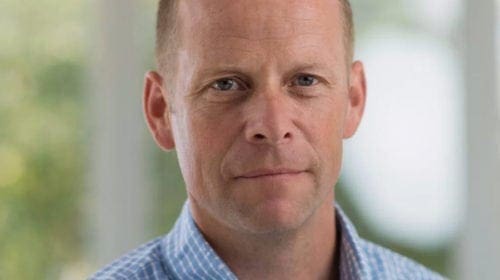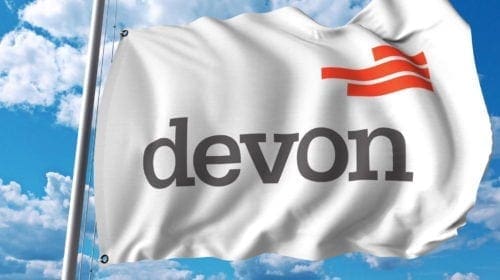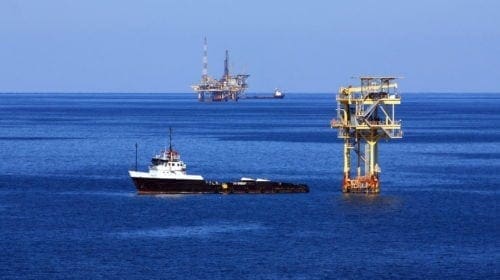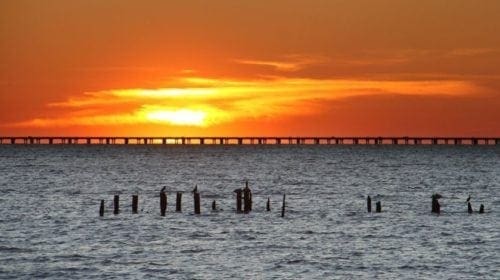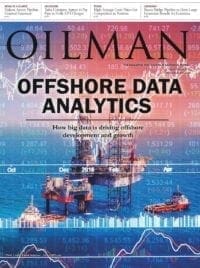Tim McNally: Why don’t you tell me a little about why EnergyFunders was founded?

Casey Minshew: Philip Racusin (CEO and Co-founder of EnergyFunders) had been talking with his uncle, a successful oil and gas operator in Houston, about how exciting and how rewarding the oil and gas industry appeared to be. However, when Philip learned that the required amount of capital to invest in an oilfield project was extremely high, he was suddenly let down. Because he is a crowd funder, he has invested with Kickstarter and all these campaigns, he wondered if anyone else was crowdfunding in the oil and gas industry, and he couldn’t find anyone else that was doing it. He got together with one of his good friends, Roger, who is one of our advisory members, and they kicked off the concept of EnergyFunders by creating this platform.
TM: What made you decide to join the team?
CM: The value that attracted me the most to it was that the business model of EnergyFunders was never designed to profit from the Investor. So, we take a carry in the fund and we work with the investor, but we don’t take a fee for raising money. If the project is not successful no one makes money, including us, so we are highly incentivized to see it succeed.
TM: How does EnergyFunders attempt to ensure a project’s success from the operator side?
CM: At EnergyFunders, we try to bring our investors the best deals we possibly can. Oil and gas projects have a tremendous amount of risk, and the last thing you need is operational risk. We work with operators that know what they are doing. We work with the best, that is our intention.
TM: And how do operators benefit from crowdfunding?
CM: Smaller operators face many challenges, and no one was solving those problems when oil was at $100. We really try to solve these problems for the operators, and one of those is always raising capital. It is the standard practice of an operator to always raise money. If we can alleviate that [issue of] raising money, we save them time, energy, and we save them money that they are spending trying to raise capital. We bring capital, and we also bring other resources such as new technology, valuable relationships, and reservoir engineer teams which a smaller operator typically doesn’t have access to.
TM: In what ways does this affect the investing side of the project?
CM: The investor doesn’t have the time, the resources, to go and do the due diligence, to find these relationships. They want a partner. We do the due diligence to help de-risk the asset because we also want a higher probability of winning. With the right investment strategy, we can get into projects that make more money than they cost. And even if things go wrong, the investor knows that we are not profiting from being wrong.
TM: What kind of measures do you take to mitigate your risk?
CM: One of the most critical things that we can do is to bring in a very successful and strong reservoir engineering team that helps us to evaluate the deals up front. The other process is to really get to know the operator. We check their track record and past performance. So, we are not just putting up deals left and right, we are putting up the right deals when they are ready to go. We truly know that these deals are specialized. The investor knows that we did the due diligence because every investor gets the chance to look at the numbers and all the data that we provide. Then, the investor can choose the project that fits best for them. We want people to invest on their own due diligence.
TM: How does this current market affect the way operators do business?
CM: The market being where it is today allows everybody to realize that we have to be fundamentally sound on how we invest, in the way we invest. When oil was at $100, the truth was that promoters were over promoting and operators were overinflating their costs, and this drives a vicious cycle where the last investor to the table loses. At these current prices, people want to make money quickly. They are willing to change the way they’ve done things for many years and actually get realistic. An investor has to get a good yield, and if an investor doesn’t get a good yield consistently, he’s not going to keep investing.





